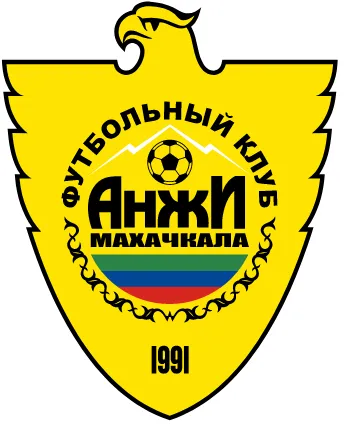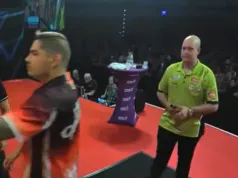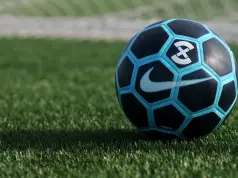Back in 2011, only true football aficionado’s had heard of a small Russian club called Anzhi Makhachkala. But the club rocketed into mainstream popularity after going on a mass spending spree.
Owned by a rich Russian magnate, Anzhi set about trying to dominate football, with lofty ambitions of being regular Champions League contenders. Having made a statement signing in one of the greatest strikers of all time – Samuel Eto’o – hopes were high.
But a couple of years into the project, suddenly the plug was pulled, and Anzhi faded into obscurity, having never scaled anywhere near the heights that they had originally aimed for.
In this article, we take a look at the crazy story of Anzhi’s rise, spending spree, limited success, and then eventual fall.
In the beginning…
The story truly started in January 2011, when Suleyman Kerimov – a Russian billionaire worth almost $10billion, purchased Anzhi.
From the outset, Kerimov spoke of his dream to turn Anzhi into world-beaters. Kerimov wasted no time in getting started, bringing Brazilian legend Roberto Carlos to the club.
Carlos is widely considered to be the best left back in history, so despite being 37 at the time, the signing was eyecatching. Kerimov paid Carlos €10million for a two-year contract.
Before the end of the winter transfer window, Anzhi had signed other players, including Diego Tardelli. The revolution had truly started, and was all set for the new season.
The First Season
Anzhi’s first season started brightly in March 2011. The 2011-12 Russian League took place over 18 months.
The real landmark moment for Anzhi came in the summer of 2011 when Samuel Eto’o joined from Inter Milan of Italy. Eto’o was viewed as one of the best strikers in the world at the time. He signed with a salary of €20million after tax!
Further household names joined during the transfer window, including Yuri Zhirkov, Balazs Dzsudzsak and Mehdi Carcela. Eto’o scored on his debut and performed well.
But a poor run of form led to the dismissal of two managers in quick succession. Experienced Dutchman Guus Hiddink was hired to take over in another sign of Anzhi’s ambition.
Christopher Samba was the next recruit to join. Anzhi finished 5th in the Russian league in the first season of the Kerimov era. This assured them of a place in continental competition for 2012-13.
The second (and final) year
The start of the second season saw a continuation of Kerimov’s spending. Lacina Traore and Lassana Diarra was the next big-name players to join, and before the season was done, Willian had joined.
Anzhi made a strong start to the season, and were seemingly pushing for the title. But as time went on, their title challenge faltered, and they ended up placing 3rd. This meant that they failed to qualify for the 2013-14 Champions League.
Anzhi also made their maiden voyage into the Europa League, where they managed to qualify from the group stage. They also managed to defeat Liverpool 1-0, in what turned out to be the highlight of their season.
However, they were eliminated at the Round of 16 stage by English side Newcastle United. Eto’o and Lacina Traore scored 38 goals between them during the season, but the campaign was generally seen as a failure.
Budget cuts and decline
Anzhi had been expected to spend more for the 2013-14 season, but the world of football was shocked when owner Suleyman Kerimov announced drastic budget cuts.
Kerimov’s health had reportedly worsened, some of his business investments had soured, and he had concerns over the club’s lack of success during their first two years.
A firesale ensued, with Zhirkov, Willian, Diarra and Samba all leaving within weeks. Samuel Eto’o then left for Chelsea, which seemed to mark the end of an era.
Manager Guss Hiddink left, resulting in Sir Alex Ferguson’s former assistant Rene Meulensteen being hired, but he only lasted 16 days. Former coach Gadzhi Gadzhiyev returned to the club.
The season ended up being a total mess. A depleted Anzhi took until the twentieth league match to record a victory, and they would only win three games all season. Anzhi ended up finishing dead last, and were relegated.
In one bright spark, Anzhi did qualify from the group stage in the Europa League, but again fell at the Round of 16 stage.
The Takeaway
And so Kerimov’s dream never came to fruition. The club would bounce back to the Premier League the following season, but have since been relegated to the third tier of Russian football.
Anzhi’s two-year spell amongst Europe’s biggest spenders was certainly a wild ride. While the club never hit the heights that many had expected, they at least enjoyed two years of excitement.
Anzhi are now a shadow of the club that they once were, and a return to the big time seems far away. For the fans of the club, they look back on the 2011-2013 years fondly.
READ MORE
















































